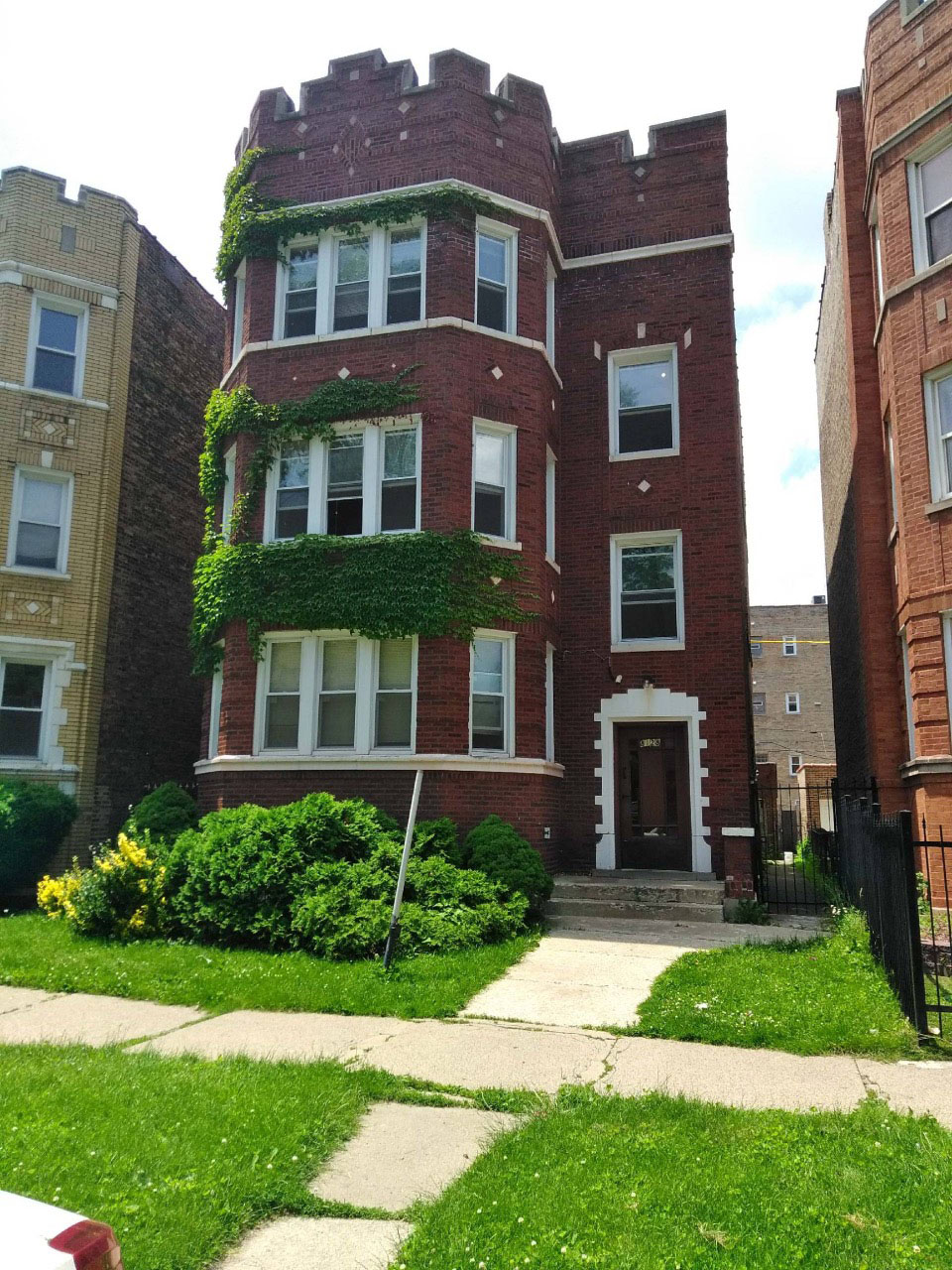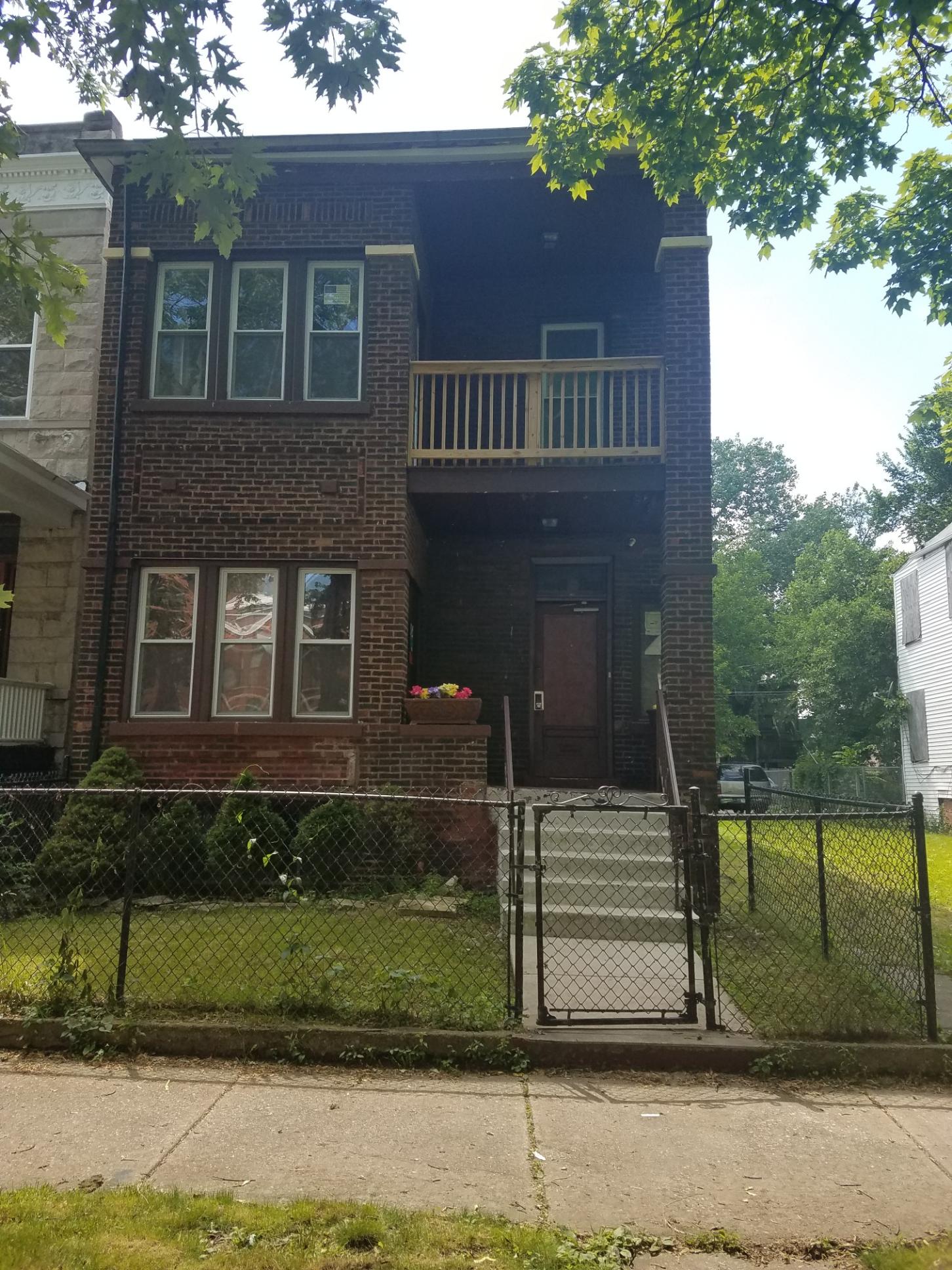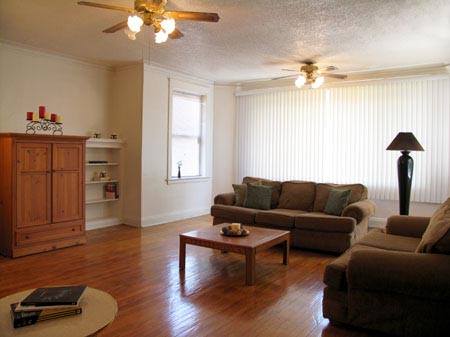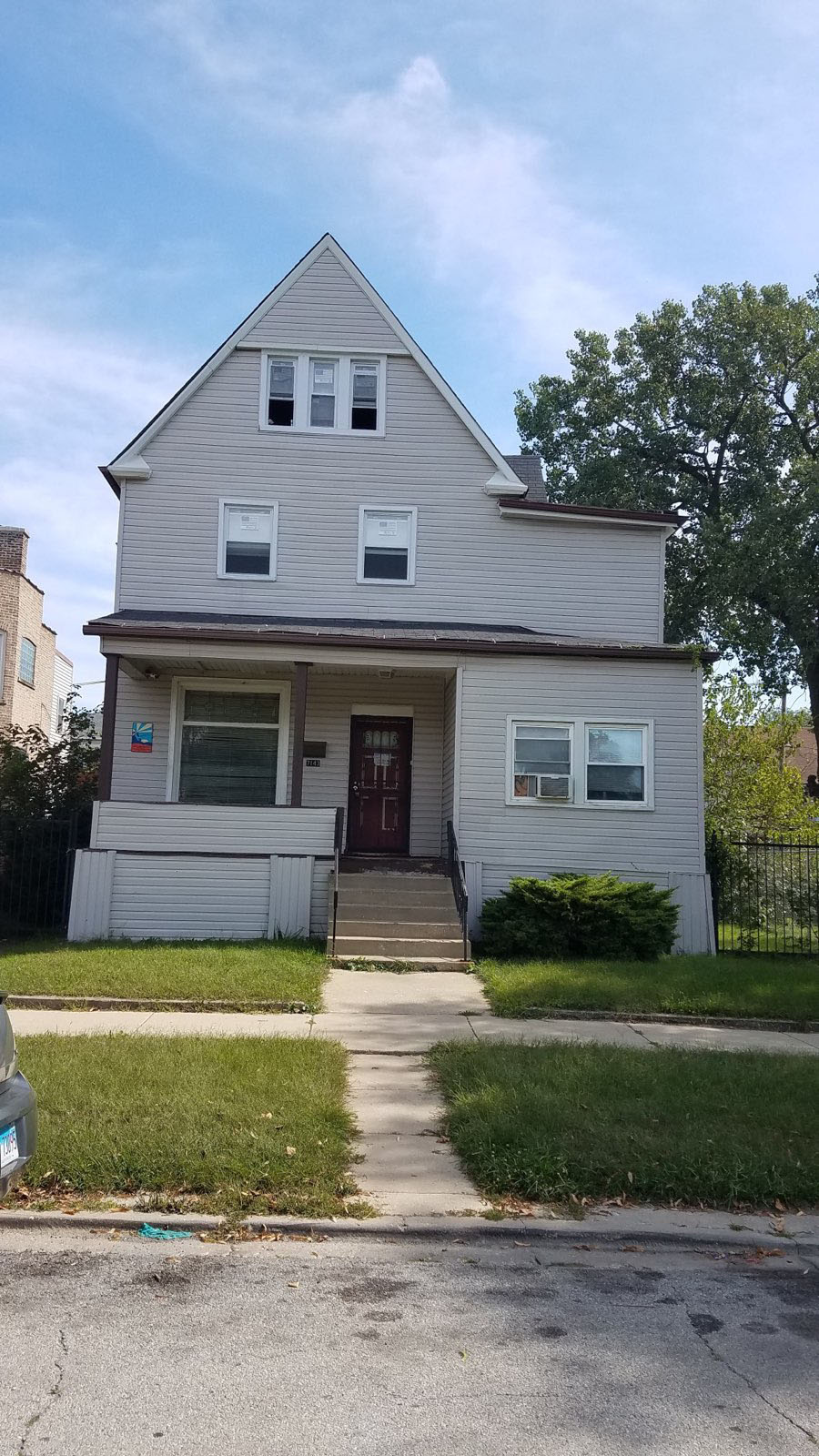With the growing drug and crime crisis in Chicago, there is a shortage of services for the city’s most vulnerable residents. While hospitals and treatment centers are flooded with citizens, local heroes like Henry McGhee, founder of Henry’s Sober Living House, opened his doors to adults seeking to begin a new chapter of sobriety and success.
Sabrina Catlett (SC): What is Henry’s Sober Living?
Henry McGhee (HM): Henry’s Sober Living House is the first black-owned, licensed recovery home in the City of Chicago. We started our business in the year 2000. I had a business partner at the time, but things were not going well. I reincorporated myself and started Henry’s Sober Living House. Since then, we have grown to four locations: one in Woodlawn, two in Grand Crossing, and one in Englewood.
 We primarily operated as a recovery home for male drug addicts, alcoholics, and ex-offenders, and we are fashioning a women’s facility. We have been in business since 2001, and since that time, we have served over 10,000 people who have come to our door. I would like to think that [by] helping one individual who has ten people that love him or her; we have affected the lives of over 100,000 people. We have helped those 10,000 people through the process of recovery and transition. I am a recovering drug addict. I was delivered from my addiction on July 23, 1999. From that deliverance, it pushed me to open up a recovery home. While I was living in a recovery home, I came up with the name “Henry’s Sober Living.” I was unemployed with nothing in my pockets. I said, “If I ever open up one, the name would be Henry’s Sober Living.” It never left me. I incorporated myself, opened it under that name, and it took off from there.
We primarily operated as a recovery home for male drug addicts, alcoholics, and ex-offenders, and we are fashioning a women’s facility. We have been in business since 2001, and since that time, we have served over 10,000 people who have come to our door. I would like to think that [by] helping one individual who has ten people that love him or her; we have affected the lives of over 100,000 people. We have helped those 10,000 people through the process of recovery and transition. I am a recovering drug addict. I was delivered from my addiction on July 23, 1999. From that deliverance, it pushed me to open up a recovery home. While I was living in a recovery home, I came up with the name “Henry’s Sober Living.” I was unemployed with nothing in my pockets. I said, “If I ever open up one, the name would be Henry’s Sober Living.” It never left me. I incorporated myself, opened it under that name, and it took off from there.
SC: Over 20 years of healing the community, and I noticed that most of your facilities are on the South Side. Is there a specific reason for that?
HM: I live on the south side, and I wanted my facilities to be near me. I wanted to be able to get to them quickly if anything happened. When I started my business, I lived in my recovery home for five years, and my family wanted me to come out of there because when you are living in a recovery home, you get all kinds of ex-offenders who are coming from all over the state and have different felonies. I think I am uniquely prepared to do the job.
God never makes mistakes. He knows how to build the right person for the right job. I am a recovering drug addict, a former police officer, and a former narcotics officer. I have dealt with gangs, crimes, and guns. I have seen the people on drugs and alcohol, homeless and hungry, labeled as abnormal. They did not put fear in me. I was able to talk to them because I spoke to them during my whole police career. I knew them because I was able to relate to them my entire police career, and while I was in recovery. I was strung out, and I knew those signs and as signals of people who were trying to recover and those who were still using. There is a different look that people have when they are recovering. There is a different glow. There is even recovery weight that you put on. You put on weight because you are eating right and doing the right thing. All of these things shaped me in building this business. I care. It is a business, but it is one where I want people to succeed. If you are not in my facility to recover, I do not want you there. Sometimes we have to make hard choices and send people to another level of recovery. My house is not for everybody. I want a clean and sober living environment. I am operating what has called a “social model of recovery.” It means that since I cannot keep the individual clean, I keep the environment clean. Since I keep the environment clean, I know if the individual is not clean. I have structure. I have meetings in the mornings, meetings in the evenings. You have to put food in the refrigerator. You have to clean and make up your bed. If I come into an apartment and the house is not clean, there is no food in the refrigerator, and the bed is not made, it tells me that the individual is not following the rules. Most times, when they are not following the rules, it is for a reason. It is because they are doing something other than what they should be. I do not have to see them using to know that they are using. 
SC: What makes you all different from other recovery facilities?
HM: I think people who are in hospitals, nurses, and doctors are clinicians. Clinicians mostly use a clinical way of thinking with things they learned from a book. What I do is hands-on and practical with an individual. I am teaching them how to live a sober lifestyle. This is a sober living environment. In the hospital, you have a 28-day stay or a 21-day stay. I have guys living with me for years. I have no time limit on staying with me. They can stay with me for as long as they want, as long as they remain clean and sober.
I understand that there are many people who will go through life changes over the years, and when they come home, there is no one who is there to help them. They have lost connection with their entire family. Henry’s Sober Living wants to step in and help. Knowing that I have been through addiction, homelessness, pain, hunger, and craving in addition to the guilt and disappointment of knowing you have hurt your family, I buy into the idea that there is a conversation that I can have with an individual about their behavior and what their behavior is doing for their future. A clinician may be able to tell them they are lost, but I can have real empathy with the pains of addiction.
SC: What is the typical day for a resident?
HM: They get up in the morning for the eight o’clock meeting. The meeting ends at nine. If they do not have a job, we want them out looking for a job from 10-3. They should be looking for a job or in school or something. I do not want my house to be used as a flophouse. Sometimes we get the occasional parole supervisor who does not want the men to get out and get the proper movement. They do not want them to get back into their addiction, but you cannot lock them in my house and expect them to have effective change. I tell the guys, “There’s no job in my house. The job is out there.” When they return, we have a 7 o’clock meeting, and there is curfew. The rules of recovery homes require us to have meetings five times a week. We have nine. We have two Monday- Thursday, and one on Sunday.
SC: What ages do you serve?
I take them from 18 on up — all adults. I prefer adults in their mid-40. They seem to have a greater rate of success. Young men seem to have another one or two left in them, so we want somebody a little older who has been beat up by the system, the streets, and by the environment— someone who has decided it is finally time to do what they have to do.
 SC: How has this service impacted your life?
SC: How has this service impacted your life?
HM: It saved my life. When I was delivered, I believed God put the stamp on me. The life I have been afforded is one that I could never have imagined. I went from being unemployed and homeless to being an employer. I have 12 employees. We have done things and been places that we could never think or say. I think recovery has impacted my life greatly. It has given me an identity, and I am extremely happy. I am doing stuff in the church and the community. I am getting involved in politics. You name it. I see the world. I have the respect of my family. I have my son and my daughter in my life, and I have a beautiful granddaughter. I have a beautiful family.
SC: With a 75% success rate, what is the secret?
HM: The 75% success rate is based on the number of people who stay with us. Of those who stay with more or us 90 days, they have a 75% chance of success. When a person is committed to their recovery, they will follow instructions. When they follow instructions, they will follow the resources that we have. We are connected to so many resources: job-training, education, health care, treatment facilities, and support for those with HIV and AIDS, [and] transgender issues.
SC: You have recently opened a home for women. How did that come about, and how is it going?
HM: We are doing some renovations in that facility. We had it open, and then we had to stop operations. It is challenging to operate a women’s facility because we do not get many women who come in and out of prisons as men do. We get more men. It was not cost-effective. We are trying to restructure that, seeking the proper ways to make it operational.
SC: How does this business model work?
 HM: We primarily operate recovery homes through government contracts with the State of Illinois, Cook County, and, occasionally, the City of Chicago.
HM: We primarily operate recovery homes through government contracts with the State of Illinois, Cook County, and, occasionally, the City of Chicago.
SC: Where do you see this service in 10 years?
HM: In 10 years, it will belong to my son, and I will be an executive director emeritus. I will come in, give advice, and connect him to people, places, and resources to keep the business going. I think it is generational. Hopefully, ten years from now, we will have expanded to work, housing, and jobs programs where we bring them in, treat them, employ them, and then we help them transition out. The biggest challenge many have is a lack of education, job readiness, and work experience.
Most of the individuals do not have any of those things. We are talking about young men who never went to school or never participated fully. Probably 95% of the men that come our way were dropouts with no education and no job experience. Young men who have been in-and-out of prison for 20 years. So now in his forties, he’s never held an apartment, never paid a light bill or gas bill, never done anything on his own, and does not have the right skills to participate in life. We are talking about the institutionalization of a man and the locking up of a man. It is the locking up of his mind where he cannot fully understand or be fully equipped to take care of himself. They don’t teach you in prison that when you get out of jail, you have to pay a light bill or gas bill, or that salt and pepper and food don’t appear three times a day. In prison, food appears three times a day, the lights are on, and the heat is on. They come home, not understanding that they have to sign a lease. They are not coming home to get job training. They are not coming home with job skills. Then they live in a community where there is a lack of jobs, and if there are any, they will be the last ones to get it. So now, they have no education, no employment, and nowhere to go. It forces them to a life of crime. The recidivism rate is high in our community, and this is because they are not being rehabilitated in the prison system. We look at transitional facilities and try to offer them up as a safety net, but they are not fully funded. If a system has kept a man in jail for 20 years, you cannot lean to a transitional facility to do everything that they need to do in 90 days. That is the problem that we have. That is a challenge. I hope we can help them go from transitional housing to treatment, to employment, to permanent housing.
SC: And if the community wants to support you, in what ways can the community support?
HM: We are setting up a donation page on Facebook and our website. We also need organizations to provide volunteer or job opportunities for our men. I always tell the young men that they have a better chance of getting a job if they volunteer because people see your work ethic and that you are willing to work for free. It means that he will work harder for money. I would hope through these organizations, they would provide some mechanism, whether it is a referral form or a program, where these men might be able to get some benefit from the man-hours that they give.
If you would like to learn more about Henry’s Sober Living House, visit them on Facebook or check out https://www.henryshouse.org/.
Sabrina Catlett, Contributing Writer